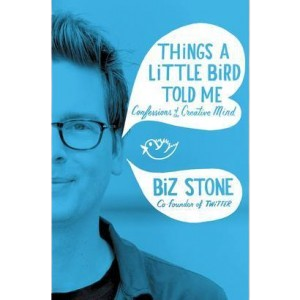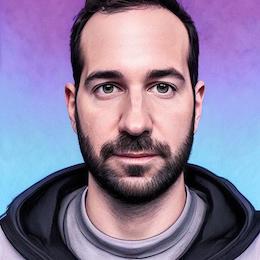
“Things A Little Bird Told Me” is Twitter co-founder Biz Stone’s autobiography. It focuses mostly on his career, starting from designing book jackets to working for Blogger with Evan Williams. It talks about his time at Odeo, why they failed, and how Twitter was born out of a hackathon at Odeo as the company was looking for a buyer. Most of the book is about early days of Twitter, from initial traction at SXSW to getting a $500 million acquisition offer from Facebook and power plays at Twitter’s board of directors about previous CEOs Jack Dorsey and Evan Williams.
Interesting stories:
- “Steven Spielberg wanted to build a giant, realistic mechanical shark in order to shoot scenes of the scary beast attacking people. But making that full-size shark became a budgeting nightmare, so Spielberg came up with a low-budget solution. He decided to shoot from the shark’s point of view.”
- “When they first built the University of California at Irvine they just put the buildings in. They did not put any sidewalks; they just planted grass. The next year, they came back and put the sidewalks where the trails were in the grass.”
On careers and running a company:
- “Opportunity is manufactured. If you make the opportunity, you’ll be first in position to take advantage of it.”
- “Success isn’t guaranteed, but failure is certain if you aren’t truly emotionally invested in your work.”
- “In order to succeed spectacularly, you must be ready to fail spectacularly.”
- “I had moved out to California to work with Evan Williams, not with Google. When I wanted to get the job at Blogger, I’d visualize myself working there.”
- “Graphic design is an excellent preparation for any profession because it teaches you that for any one problem, there are infinite potential solutions.”
- “If you have a list of people you don’t want to lose at any cost, don’t wait until they quit to offer them more money and more stock options.”
- “If you want the ice to melt faster, you break it up to expose a greater surface area to the warmer air than would be exposed if you left the ice in a solid block. The same is true if you’re trying to effect more positive change. Theoretically you should start multiple successful companies and then leave them to smart people to run.”
On building products:
- “If you don’t love what you’re building, if you’re not an avid user yourself, then you will most likely fail even if you’re doing everything else right.”
- “Limiting my options gave me a place to start. Embrace your constraints. They make you better.”
- “Making a feature optional is like throwing it into the junk drawer. Instead, it’s our responsibility to decide what makes the most sense.”
- “Phones are the hyperlinks of humanity.”
Overall, it’s an easy read. You’ll enjoy it if you’re interested in learning about Twitter’s early days, also check out Hatching Twitter for more detailed coverage.
